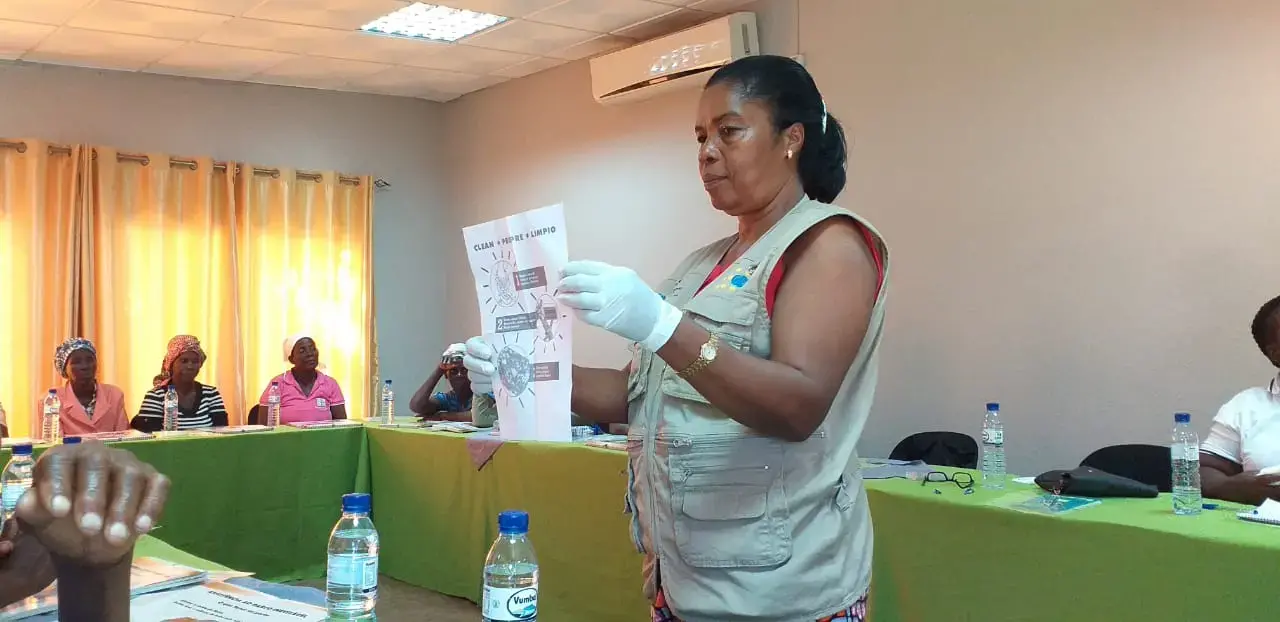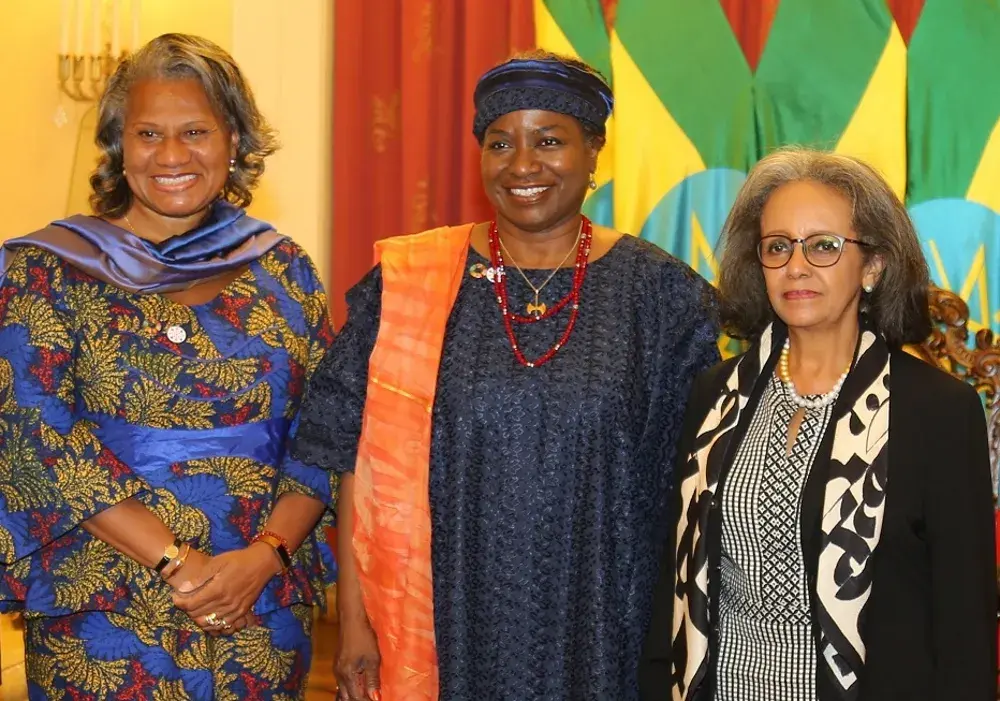This year, the world commemorates midwives under the theme, ‘Midwives – Celebrate. Demonstrate. Mobilize. Unite.’ Laurinda Namacala, a maternal and child health (MCH) nurse (also referred to as a ‘midwife’) of 26 years, wishes that safety conditions are created and/or reinforced for all midwives in times of COVID-19. According to the 51-year-old mother of four, MCH nurses often behave like mothers towards the women they assist during labor and should be able to provide this care within a safe and secure environment.
As the world grapples with the grave impact of COVID-19, women continue to get pregnant, and babies are still being born. Midwives and MCH nurses work tirelessly in communities, health centers, hospital wards and in women’s homes, under difficult circumstances and often risking their own lives and well-being to do so. As they continue to deliver life-saving care for pregnant women and their families, it is critical that they are protected, supported and prioritized, particularly when health systems become overstretched.
Childbirth does not stop because of a pandemic
According to Laurinda, Head of the Maternity Ward of the Paquitequete Health Center in Cabo Delgado province, services at the health center have changed because of the pandemic. Adhering to new protocols and guidelines, expectant mothers can no longer have family or friends present during the birth, while monthly family planning and prenatal consultations have been reduced to once every 3 months, with the exception of emergency consultations.
Paquitequete Health Center ©Alexandre Muianga/UNFPA Mozambique
The Health Center in Cabo Delgado now benefits from an isolated maternal and child health (MCH) ward, established by the Ministry of Health, with support from the United Nations Population Fund (UNFPA) in Mozambique. With five MCH nurses/midwives on the roster, prenatal consultations continue to take place, but expectant mothers are asked to come in only when absolutely necessary to reduce exposure to the virus.
Globally, the number of deliveries attended by skilled health personnel increased from 61% in 2000 to 78% in 2016 (but only about 50% in sub-Saharan Africa). Despite the positive increase worldwide, an estimated 1 in 4 mothers are left without access to skilled midwifery care during childbirth (WHO Global Health Observatory, 2016).
MCH nurses and Midwives like Laurinda, fight against these odds throughout their careers, doing their part to safely support mothers and babies through the journey of childbirth. Many of them - including Laurinda - put their life and safety on the line, particularly when delivering care and support to communities where neighboring health centers are not readily available.
Some of the most agonizing moments of her career was when she worked in the remote district of Chiure (in Cabo Delgado Province in northern Mozambique). Providing support for isolated communities, Laurinda often had to assist women through prolonged labors or transport laboring mothers through long-stretches of broken, unpaved roads while sitting aboard motorcycle ambulances.
Midwives across the globe defend the rights of women and girls
According to Dr. Natalia Kanem, UNFPA Executive Director, “midwives stand by women when they are most vulnerable. They fight daily to defend a woman’s human right to experience pregnancy and childbirth safely, even as they themselves often face discrimination, sexual harassment and unequal pay. These challenges are now being exacerbated by the fear and uncertainty over COVID-19.”
Natite Health Center ©Alex Muianga/UNFPA Mozambique
Josefina Machedi Ntapae, a maternal child health nurse of more than 20-years, says that “[they are] special because they [become a part of] the lives of expectant mothers.” Josefina, who trained at the Quelimane Health Sciences Institute, now works at the Natite Health Center where she assists up to 150 deliveries a month.
‘Compassion, patience and professionalism’ are the words that Josefina used to describe an MCH nurse and midwife. She shares that midwifery is a profession that demands a lot of responsibility, as the pain of childbirth manifests itself in different ways in expectant mothers.
Josefina remembers when she was working in a remote district, dealing with a mother's prolonged labor, when she tried to contact all the relevant administrative authorities in an attempt to evacuate the mother to the nearest health center. Unable to get support from her direct superiors, Josefina rushed to the District Administrator's house to seek immediate support. Through her determination and quick judgment, the expectant mother was successfully transported and able to receive the care she needed.
UNFPA supports the Government to strengthen the midwifery workforce
In an effort to enhance the midwifery workforce in Mozambique, UNFPA supports three programmes implemented by the Government, which enable more women like Josefina to receive the adequate training they need: the Tete midwifery programme funded by the Government of Flanders with technical support from WHO; the KIMCHI project funded by the the Korea International Cooperation Agency (KOICA) in collaboration with WHO; and the UN Joint Programme (UNFPA, UNICEF, WHO) funded by the Department for International Development of the United Kingdom (DFID). All three programs aim to improve reproductive, maternal, newborn, child and adolescent health in Mozambique.
To mark International Day of the Midwife, Josefina shares her message to all MCH nurses in the country: “nurses have to retain information, [practice] patience, professionalism and compassion and [I hope they] share my desire to see a Mozambique in which all deliveries take place in a health center.”
UNFPA applauds and hails the work of Laurinda, Josefina and all maternal and child nurses in Mozambique and across the globe. As the sexual and reproductive health agency of the United Nations, we pledge to stand by these unsung heroes as they deliver life-saving care to mothers and their newborns.




